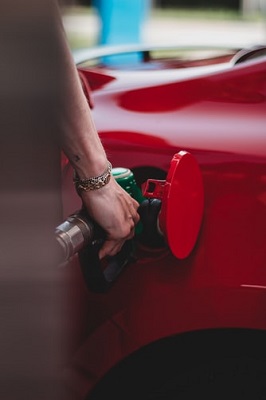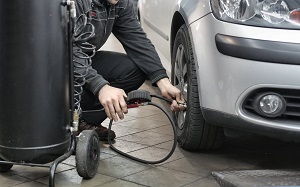How to Improve Your Car’s Fuel Economy

How to Inspect Your Tires

How to Extend the Life of Your Tires
Tuffy's Car Washing Tips
- When you see contaminants like dead bugs or bird droppings on the paint surface of your car, rinse them right away. Bird droppings have a high acidity that can eat into the clear coat. If not removed they can dig deep into your paint, leaving “scars” that can only be removed by sanding and repainting.
- Don't wash your vehicle during the hottest part of the day. The soap and water dry much faster and can dull the finish.
- ...[more]
Signs of a Bad Car Battery
A car battery provides the power needed to start your vehicle. It is a vital, mechanical component often overlooked. Batteries can fail without warning. There are steps that you can take to evaluate problems and restart your battery. For batteries to provide optimum performance, regular maintenance is necessary.
When Starting Your Vehicle
A dying car battery causes problems with your car starting, especially after the car sits for a few hours. If your car struggles to turn over, but then the engine starts up without a problem, the battery is likely the cause. If the battery has an extremely low charge, you may hear a clicking noise when you try to start up the engine, but the car will not start.
...[more]
Is Your Water Pump All Pumped Out?
One of the first clues you might have that you have an issue with your water pump is your temperature gauge. Is your engine running hot? Another clue is the strange sounds coming from your engine. After years of pumping coolant, you might hear a grinding or whining sound indicating your water pump is almost all pumped out.
Most of the time your shaft seal starts to leak or the impeller inside comes lose, wears down, or the blades wear down or erode. Leaks usually happen in the area where the water pump meets the engine. A leaking water pump causes the cooling system to lose coolant. If the leak goes undetected, the engine will overheat due to the loss of coolant. If your first clue that you have a problem is the temperature warning light comes on, turn the engine off immediately. Continuing to drive with an overheated engine can take you from what ...[more]


